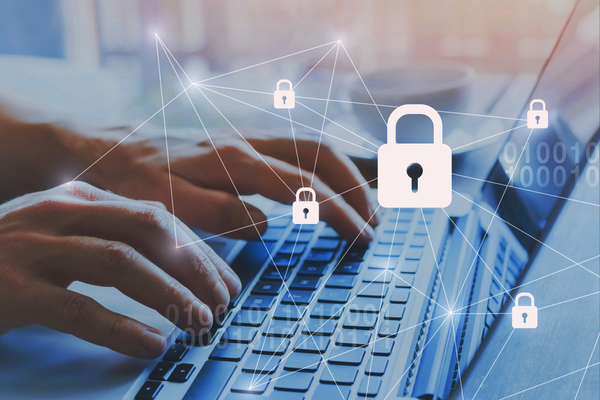There are basic cybersecurity protections that every business should have. From firewalls to password protection to proper employee education, your business needs a cybersecurity strategy that evolves and adapts with your organization.
Cybercrime is a multi-trillion-dollar industry, and no one is safe from hackers.
We’ll outline a comprehensive list of all the cybersecurity solutions your business should have in place. These include education, email protection and system safeguards. Keep in mind that not only should your business initiate these measures but you should also monitor and update them regularly. For a full cybersecurity assessment, contact Thriveon today. We can evaluate the strengths in your system and identify weaknesses that hackers could exploit.
Why Is Cybersecurity Important?
In 2021, cybercrime was a $6 trillion industry with cyberattacks increasing by 31% from 2020. By 2025, cybercrime is expected to be a $10.5 trillion industry. The simple, hard truth is that no business is safe from attack.
As businesses rely more and more on networks for remote work and on cloud storage for important data, the importance of cybersecurity only increases. You may not think your business is a target but any one of the two million dark web users active right now could be searching for vulnerabilities in your security.
Educate Your Staff
Education is one of the strongest weapons against cyberattacks. By teaching your employees how to identify suspicious activity and by alerting them to potential points of attack, you can reduce your risk significantly. Steps to take include:
- Learn how to identify phishing scams - attacks baited with suspicious links.
- Don’t click on ads - even reliable web pages can have shady advertisements.
- Don’t share personal info on social media - hackers can collect sensitive data on you like date of birth, mother’s name, etc.
- Have a unique password for every login - recommended length is at least 19 characters.
- Don’t store your passwords on your browser - use a password protection application.
- Don’t use public WiFi - hackers can create fake networks.
- Don’t use public computers - always work from a trusted device.
- Call to verify ACH payments - if you get notified about a change to an automated payment, always call to verify the change before clicking.
- Always use two factor authentication - your login is one of your most vulnerable points for attack.
Keeping your staff up to date on best cybersecurity practices takes time but is well worth the effort. Thriveon emphasizes staff education as part of their protective services. Your organization is only as strong as its weakest link.
Protect Against Email Attacks
Email attacks are among the most common ways hackers gain access to your valuable data or sensitive information. By opening the wrong message or following a corrupt link, one of your employees could unwittingly open a portal. Unfortunately, you might not even catch it until much later. To protect against attack via email:
- Learn to recognize email scams - see education above.
- Hover over sender addresses - this allows you to see where messages originate from.
- Don’t click on suspicious links or open attachments you don’t recognize.
- Install email click protection - third party protection can help protect you even if you accidentally open a malicious link.
Talk to one of our IT experts to learn more about how to protect your company’s email.
Secure Your Hardware and Software
Security starts with the proper installation of all your hardware, software, networks and servers. Make sure that whenever you add a new application or piece of equipment that it’s properly installed and integrated. Other tips:
- Isolate your backups. If a hacker can get into your backed up data, you have no backup. By isolating your backup from your network you’ll have secure data to restore in the event of an attack.
- Keep malware and firewalls up to date. It goes without saying that anti malware is a crucial component of your cybersecurity. With the rapid rate that malware attacks evolve, you need to stay on top of updates to combat them. Firewalls also need regular maintenance to make sure all unused portals are properly closed.
- Invest in cybersecurity insurance. Financial losses due to a cyberattack can be catastrophic to a business. Protect yourself with good insurance.
Expert Help with Cybersecurity Protections
Trust your cybersecurity to an IT firm that will proactively enhance your defenses. Thriveon understands the importance of cybersecurity for businesses of all sizes and we know how to protect your business. This post gives you an idea of what good cybersecurity looks like. Schedule a meeting today to get started on implementing a secure strategy for your organization.
